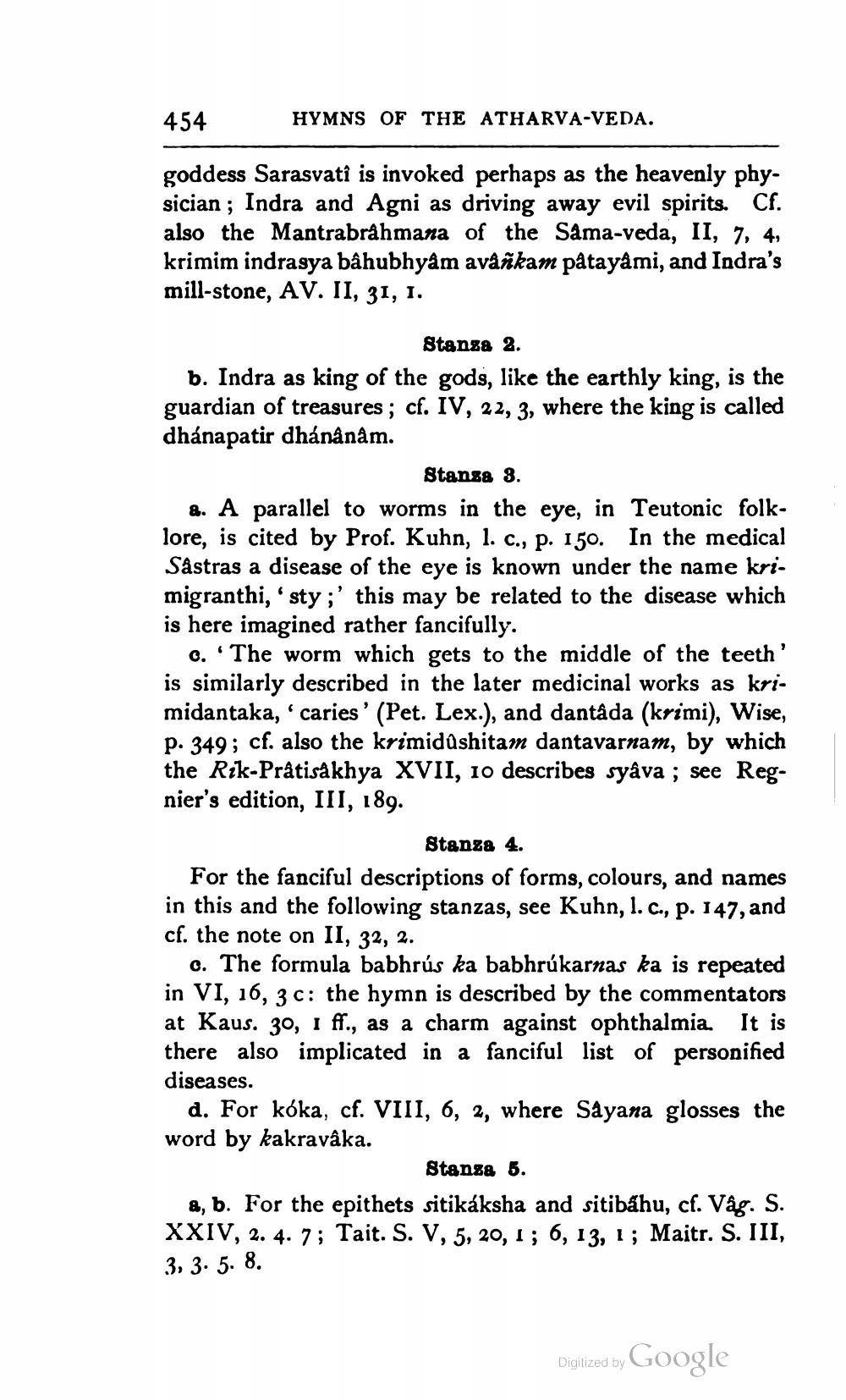________________
454
HYMNS OF THE ATHARVA-VEDA.
goddess Sarasvati is invoked perhaps as the heavenly physician ; Indra and Agni as driving away evil spirits. Cf. also the Mantrabrâhmana of the Sama-veda, II, 7, 4, krimim indrasya bâhubhyam aváñkam påtayami, and Indra's mill-stone, AV. II, 31, 1.
Stanga 2. b. Indra as king of the gods, like the earthly king, is the guardian of treasures ; cf. IV, 22, 3, where the king is called dhánapatir dhánânâm.
Stanga 8. 8. A parallel to worms in the eye, in Teutonic folklore, is cited by Prof. Kuhn, 1. c., p. 150. In the medical Såstras a disease of the eye is known under the name krimigranthi, 'sty;' this may be related to the disease which is here imagined rather fancifully.
0. 'The worm which gets to the middle of the teeth' is similarly described in the later medicinal works as krimidantaka, 'caries' (Pet. Lex.), and dantâda (krimi), Wise, p. 349; cf. also the krimidůshitam dantavarnam, by which the Rik-Prátisakhya XVII, 10 describes syâva ; see Regnier's edition, III, 189.
Stanza 4. For the fanciful descriptions of forms, colours, and names in this and the following stanzas, see Kuhn, 1. c., p. 147, and cf. the note on II, 32, 2.
c. The formula babhrús ka babhrúkarnas ka is repeated in VI, 16, 3c: the hymn is described by the commentators at Kaus. 30, i ff., as a charm against ophthalmia. It is there also implicated in a fanciful list of personified diseases.
d. For kóka, cf. VIII, 6, 2, where Sayana glosses the word by kakravaka.
Stansa 5. 2, b. For the epithets sitikáksha and sitibáhu, cf. Våg. S. XXIV, 2. 4. 7; Tait. S. V, 5, 20, 1; 6, 13, 1 ; Maitr. S. III, 3, 3. 5. 8.
Digized by Google




